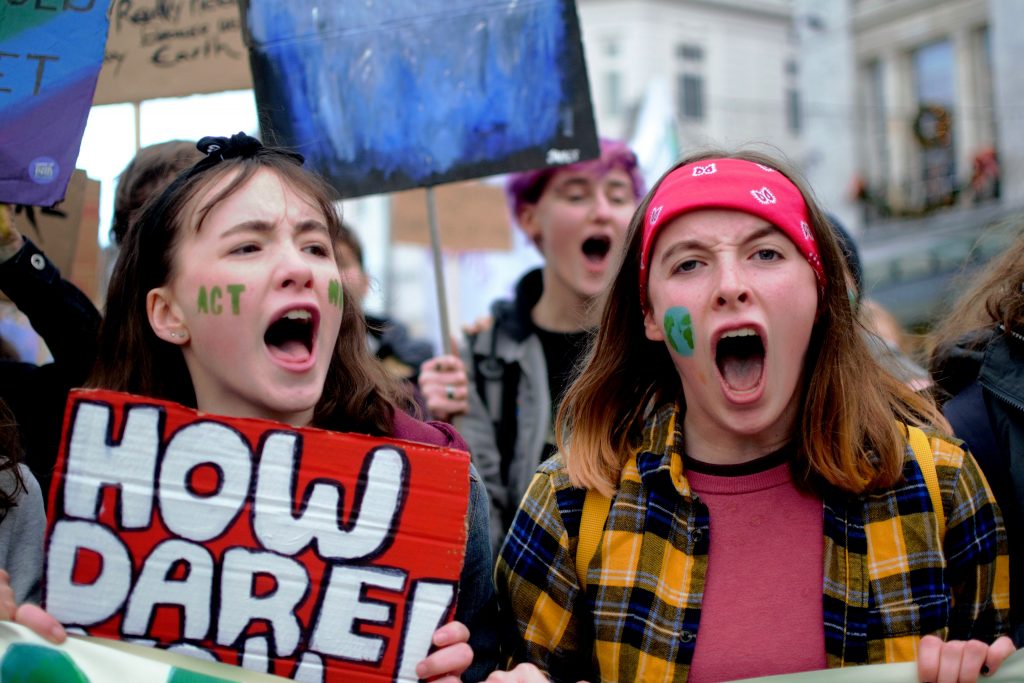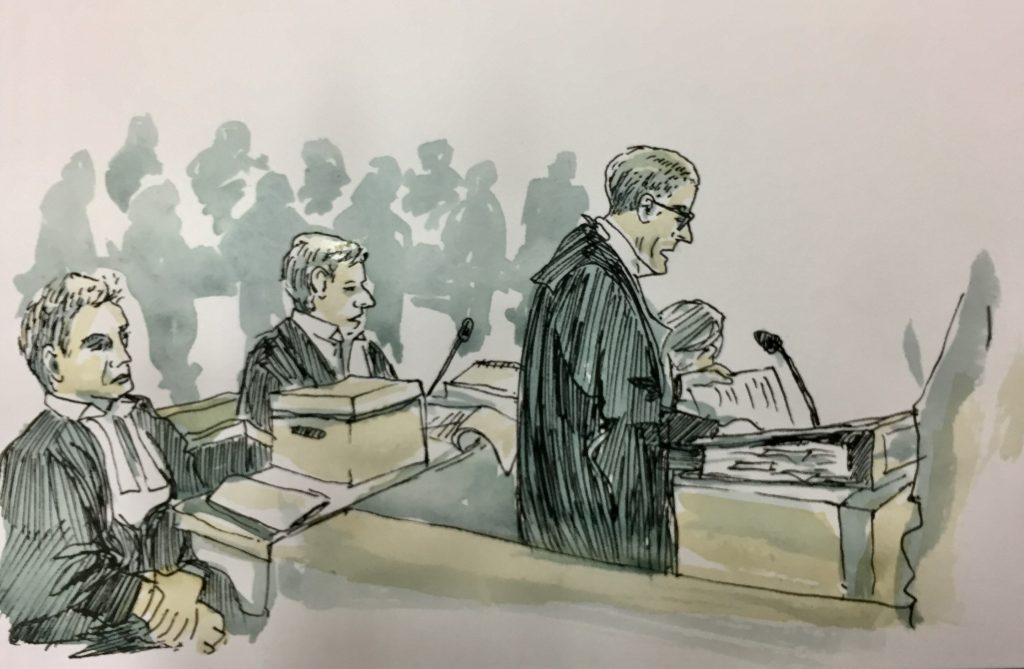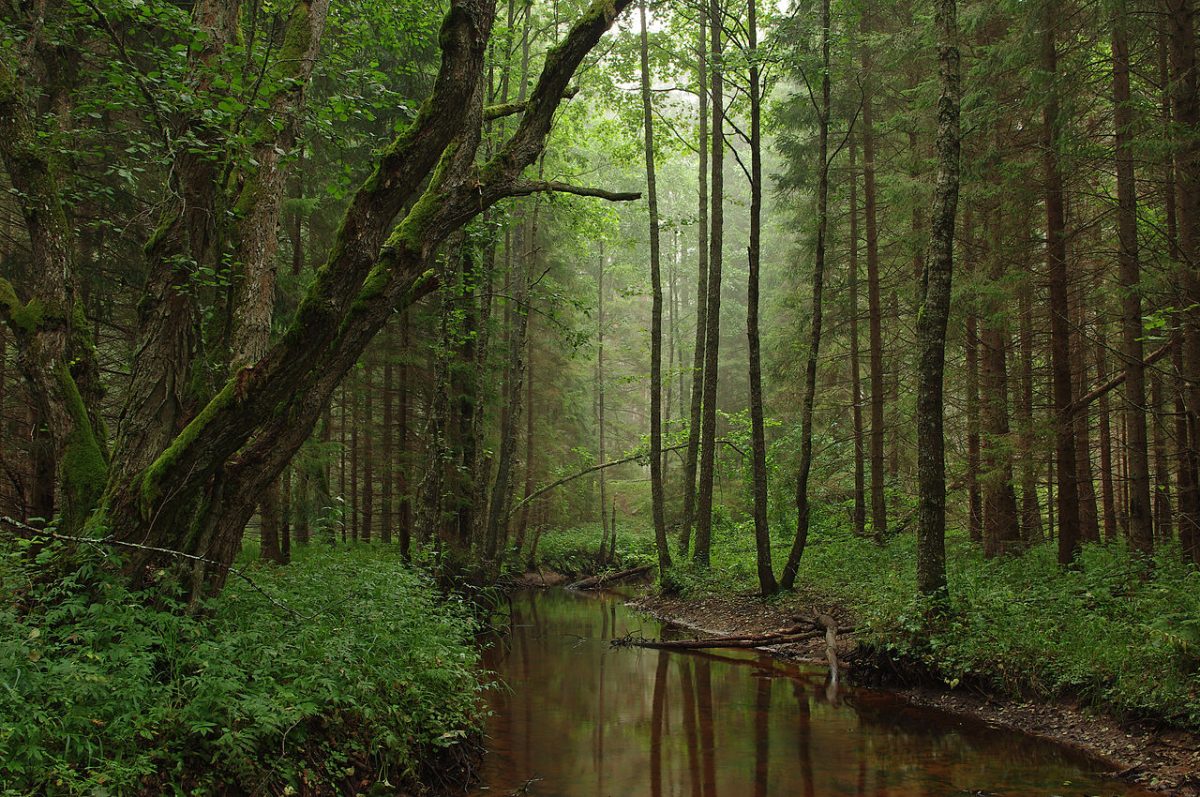Climate change: the human rights challenge of our time

December 19th, 2019
Climate change is the utmost human rights challenge of our generation, the UN Special Rapporteur on extreme poverty and human rights told an audience in the capital this morning.
Speaking at an event at the Bar of Ireland building in Smithfield today, Professor Philip Alston said that the impact of climate change will affect each and every person, from the poorer global south to wealthy Western nations.
Poor people, indigenous communities in particular, will not be able to withstand the consequences of climate impacts and “risk being wiped out first”, he said.
Prof Alston said that we risk entering a “climate apartheid scenario” where the wealthy can pay to escape the likes of overheating, hunger, and conflict while the rest of the world is left to suffer.
The impacts of climate change will strike across the human rights spectrum, he said, as extreme weather impacts food production and supply, destroys housing, and turns millions in climate migrants.
In July, Prof Alston released a report that found climate change is likely to drive 120 million of the world’s poorest and disadvantaged people into poverty by 2030, undoing half a decade of work to combat extreme poverty.
The report states that millions will face malnutrition and economic hardship due to the likes of drought and the destruction of marine ecosystems caused by rising temperatures at sea.
He warned that, despite the extent of the crisis, governments are “doing stunningly and dramatically little”, including Ireland and his native Australian that is “burning furiously” as bush fires ravage the country.
The worsening climate crisis is also a threat to democracy, which is itself “pathetically incapable of responding to climate change” as politicians remain locked into short-term election cycles, he said.
“Governments and courts are not going to come to their senses on this without public pressure,” he added, outlining his fear that States will start to “ratchet up” legislation to restraint activist rights.

Human rights community need to step up
Prof Alston said that the human rights community itself is not acting urgently enough to respond to the climate crisis, adding himself to the list after brushing aside warnings from his friend Mary Robinson who was “banging on” for years about the coming crisis.
While originally seeing it as “one of the hundreds” of human rights concerns, Prof Alston said that he soon came to realise it is the key challenge of our time. “Climate change is going to overwhelm all of the other issues and there is justification to put it right at the top of the list.”
He also criticised the focus of the UN and the international community in seeking to rely on the “corporate dimension” and public-private partnerships to soak up our emissions problem.
“I have not seen anything from corporate actions on the scale needed to tackle climate change [so] to think that the corporate sector as a whole is going to lead us out of climate change is ludicrous,” he added, highlighting the trillions in subsidies given to fossil fuel companies by States.
He added that civil society community and activist groups must factor climate change into their work and that it can no longer be left to those in the environmental sector alone.
“My bottom line is that climate change is a matter for all of us that we cannot leave for others [to tackle] and no matter where we sit, we have to think about what we can do… Those who do not push are opting out and I do not think that is an option when it comes to climate change,” he said.

Climate litigation
Prof Alston finished his talk by touching on the recent “explosion” of climate change litigation that, while “not a panacea” to the problem, is an important step forward.
He focused on September’s judgment in Climate Case Ireland where Friends of the Irish Environment (FIE) argued that the State’s mitigation plan is not designed to achieve the level of emissions reductions required to halt rising temperatures and protect citizens from the worst climate impacts.
This, the group argued, is a clear breach of constitutional and human rights, including the right to an environment consistent with human wellbeing and dignity. While the High Court decision fell on the side of the State, Prof Alston said that there were some “very progressive” decisions in the case.
He specifically pointed to the court’s acceptance of an unenumerated constitutional right to a healthy environment and the court’s decision to grant standing to an environmental NGO to present a case on behalf of Irish citizens who may be affected by climate change.
FIE has now lodged two appeals – a direct appeal to the Court of Appeal, as well as an application to ‘leapfrog’ the case directly to the Supreme Court
The event was hosted by the Human Rights Committee of the Bar of Ireland and the Irish Centre for Human Rights with the Ryan Institute in NUI Galway.
The event was chaired by the Chief Justice, Mr Justice Frank Clarke, and John Barry BL also spoke at the event, outlining Ireland’s poor record on climate change to date. Mr Barry also commented on recent legal developments in the area of climate change and environmental protection.
Dr Maeve O’Rourke, a lecturer in human rights law at NUIG, also provided an overview of a new human rights law clinic at the Irish Centre for Human Rights that will have climate change at its heart.
Starting this year, students involved with the law clinic are working on a range of projects alongside community groups tackling issues such as Ireland’s poor climate mitigation record and the potential importation of fracked gas into Ireland.
[x_author title=”About the Author”]







